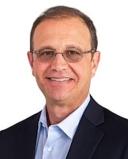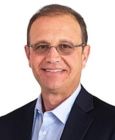Addiction
One of Many Addiction Experts Wishing I Had Known Better
Uneducated practitioners bear a huge responsibility in fueling drug addiction.
Posted October 3, 2019 Reviewed by Matt Huston
Lost amidst the news of more opioid deaths and the ongoing legal troubles of Purdue Pharma is another terrifying side to the story. As a psychiatrist specializing in addiction, witnessing people fight the demons of opioid addiction is frightening, but even more so is the number of uneducated physicians who prescribe life-threatening medications — virtually without a second thought — to patients with a history of substance abuse. I know. I was one of those—one of the countless practitioners who wished we had known better.
Yes, it was a different time and place. We practiced what had been taught. When I finished my psychiatric training in 1995, the world of addiction medicine and psychiatry was a much smaller universe. Yet to be fully understood were the million little pieces needed to put the puzzle of a patient’s history together to form a proper diagnosis and best course of treatment. Prescriptions were the panacea.
Needless to say, my enlightenment was immediate. Addicts’ spiraling opioid-driven lives are ice-cold showers that demand constant attention with no quick fix. The medical community (and I include myself) failed to appreciate that opiates lead to a hijacking of the brain that is unlike any other drug. Why did it take so long for practitioners and patients alike to seek help in understanding the death grip of opiates?
My experience as a psychiatrist with different rehab facilities since 2006 has presented me with countless examples of this life and death struggle. Addiction is a democratic disease, as we all know, and my practice with high-end rehab centers underscores this. I have treated actors, musicians, models, professional athletes, doctors, lawyers, and CEOs. In my other job working in California state prisons, I have treated gangsters, murderers, sex offenders, drug dealers and the like.
The common denominator with all the people I have treated is a record of devastation. These are — or were — someone's son, daughter, mother, father, wife, husband, grandparent, aunt, uncle, friend. I have seen clients whose lives ended from a heroin overdose, those who were on a ventilator in an ICU, and parents at the bedside praying for their son. One not-so-unique case was the young man surviving a near-death heroin reaction, but on the same day he was released from the hospital, shooting up heroin again.
I want to believe that the onslaught of sad stories of so many pharmaceuticals’ greed is perceived by all of us as a necessary alarm. Over time, I have had the benefit of top-flight mentors in addiction medicine ─ an experience I can only hope others in my profession can find. My own path to helping people held captive by addiction is educating myself about the ever-changing mix of opiates, other drugs of abuse and evidence-based treatments. When I sit across from a patient, I am consciously seeing them more as a family member or friend. This makes all the difference.
Enlightening ourselves about substance abuse as health care professionals —not just those solely dedicated to addiction medicine — is crucial if we are ever to conquer this affliction that costs so many lives. I strongly encourage that families insist on medication-assisted treatment (such as Suboxone, Vivitrol or comparable) to treat opiate addiction.
The horrific stories are so common that my patients describe being numb from all the death and dying around them. I am always reminded of the branches of a family tree that will never exist thanks to opioids, and all the countless ways such unnecessary death impacts us. Sadly, this will never change as long as gratuitous prescriptions are carelessly scribbled by the hands of inadequately educated doctors.


